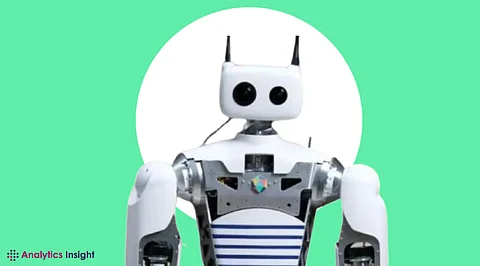

Hugging Face, known for developing AI in open-source platforms, has announced the launch of two pairs of revolutionary humanoid robots: HopeJR and Reachy Mini. The aim here is to democratize robotics by offering advanced capabilities for much cheaper than industry giants like Tesla's Optimus Gen 2 and Unitree with their G1.
HopeJR is a full-range humanoid robot created in partnership with The Robot Studio, priced in the $3000 range, considerably cheaper than competitors like Unitree G1 at $16,000 and Tesla Optimus Gen 2, which goes past $20,000. With 66 degrees of actuated freedom, it can walk and manipulate objects extremely precisely with respect to the environment.
Remi Cadene, principal research scientist at Hugging Face, said on X, "Meet HopeJr, a full humanoid robot lowering the barrier to entry! Capable of walking, manipulating many objects, open-source, and costs under $3000.
Designed by @therobotstudio and @huggingface"
Together with HopeJR, Hugging Face launched Reachy Mini, a desktop robot that is suited for testing AI applications. Priced somewhere between $250 and $300, the Reachy Mini can speak, listen, and move its head. This way, developers now have a neat little platform to try out AI interactions.
Being open source, users can improve, modify, or completely redesign its capabilities to fit their applications.
This move into robotics by Hugging Face fits its commitment to open source. By making designs and software available for HopeJR and Reachy Mini, they are advocating a more collaborative way into robotics innovation.
This will prevent monopolization by large corporations while also fostering transparency of robotic systems. The program also includes LeRobot, another open-source toolkit aimed at simplifying AI robotics development.
Issues such as battery life come with a gamut of other opportunities. For instance, the Unitree G1 lasts for two hours on a full charge only. Meanwhile, the battery specifications of HopeJR have not been revealed yet, and its open-source nature would permit community enhancement.
Hugging Face has opened a waitlist for both robots, thus signaling their chronological availability and further developmental phases.
With such an affordable and open-source humanoid, Hugging Face perhaps marks one of the important steps toward bringing robotics to the masses. In breaking down the costs and creating transparency, the company paradoxically opens the floodgates of adoption and innovation in robotics.
